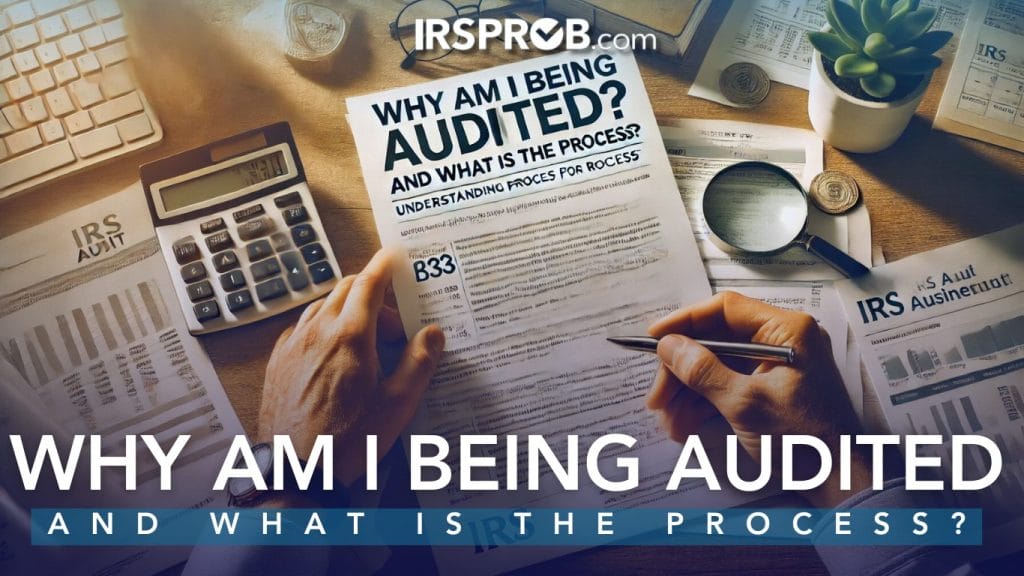
For business owners, receiving an audit notice from the IRS can be stressful and confusing. Understanding the audit process and how to handle it can help ease some of the concerns. This blog post will walk through why audits occur, the process, and what business owners need to know.
What is an IRS Audit?
An IRS audit is an examination of your financial records to verify the accuracy of the information on your tax returns. It’s not an automatic indicator of wrongdoing. Instead, it ensures compliance with the tax laws and correct reporting of taxes owed.
How Does the IRS Choose Who Gets Audited?
The IRS uses several methods to select taxpayers for audits:
- Random Selection and Computer Screening: The IRS compares your return against “norms” from other returns to identify anomalies or outliers. This process is mostly automated.
- Related Examinations: Sometimes, if you have transactions or partnerships with someone whose return is being audited, your return may also be selected for examination.
- Other Red Flags: While not explicitly stated, activities like reporting excessive deductions, unusually high or low income, or failing to report all income could increase your chances of an audit.
What Won’t Trigger an Audit?
Filing an amended return does not automatically trigger an audit, although the amended return may still be subject to review. Similarly, receiving a refund doesn’t mean your return will automatically be audited.
How Will the IRS Notify You?
The IRS notifies taxpayers about audits by mail only. You will never be notified by phone, email, or any other method. The mail notice will include:
- Contact information for the IRS auditor.
- A list of documents the IRS wants to review.
- A deadline to respond.
If you receive communication through phone or email, be cautious—it could be a scam.
Types of Audits
There are two main types of IRS audits:
- Correspondence (Mail) Audits: These are conducted entirely by mail. You’ll be asked to send specific documents to the IRS for review. If you need more time to respond, you can request a one-time, automatic 30-day extension.
- In-Person Audits: These can happen at an IRS office or at your place of business. For extensions, you’ll need to directly contact the auditor. In some cases, if your documentation is too extensive to mail, you can request an in-person audit instead of a mail audit.
What Happens During an Audit?
During an audit, the IRS will review the returns listed in the audit notice. However, if they find substantial errors, the audit could expand to other years. Generally, the IRS can audit returns from the past three years, but they may go back as far as six years if they find significant issues.
The auditor may request supporting documentation, such as receipts, bank statements, and other financial records. You can provide these in paper or electronic format, depending on the IRS’s request.
Responding to an Audit Notice
It is crucial to respond to the audit notice within the specified timeframe. If you do not respond, the IRS will conduct the audit without your input, which could lead to penalties. Always send documents using a method that includes delivery confirmation to ensure they are received.
How Long Does an Audit Take?
The duration of an audit depends on several factors, including the complexity of the issues, the availability of information, and whether you agree or disagree with the findings.
Audit Outcomes
An audit can conclude in three ways:
- No Change: If you substantiate all the items being reviewed, your return will not be changed.
- Agreed: The IRS proposes changes, and you agree. You’ll be asked to sign an agreement form.
- Disagreed: If you disagree with the auditor’s findings, you can request a meeting with their manager, seek mediation, or appeal the decision.
After the Audit
If the audit determines that you owe additional taxes, you’ll have several payment options. The IRS provides detailed information on the collection process in Publication 594: The IRS Collection Process.







